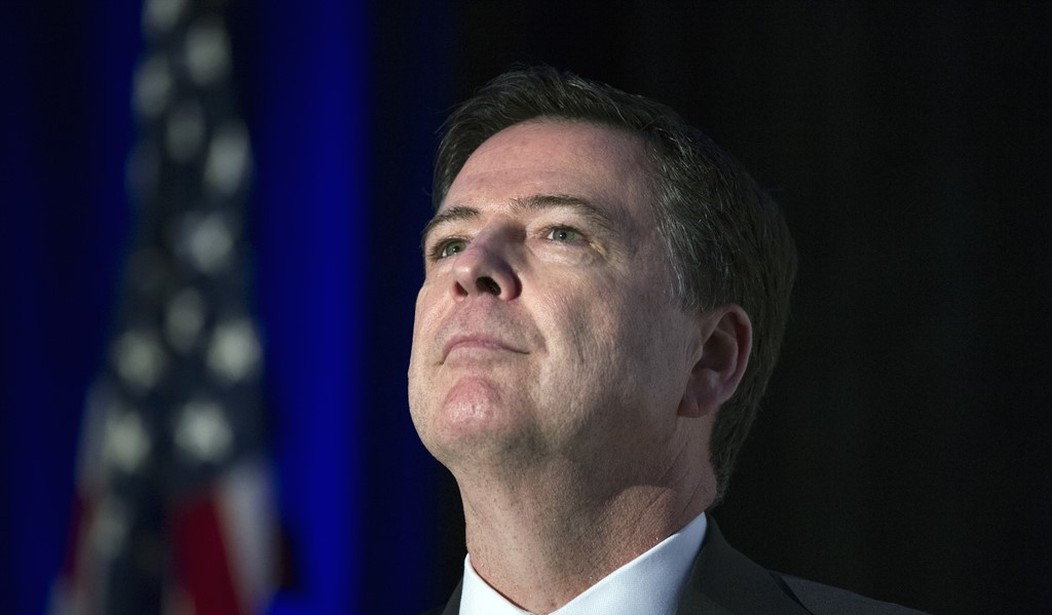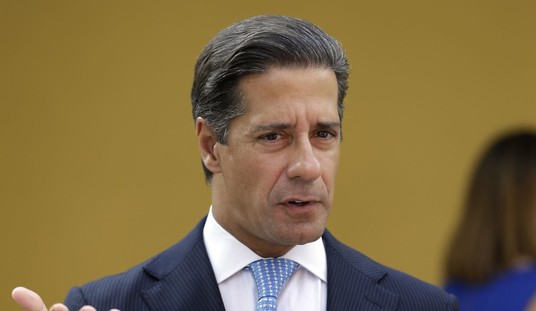A smart decision after a series of silly ones.
“The President’s power to assert executive privilege is well-established. However, in order to facilitate a swift and thorough examination of the facts sought by the Senate intelligence committee, President Trump will not assert executive privilege regarding James Comey’s scheduled testimony,” said a statement issued by the White House.
Comey’s testimony Thursday is a cinch to damage Trump and the White House, potentially seriously depending upon what he reveals, but trying to stop him by asserting the privilege would have made a bad situation worse. Trump made all sorts of mistakes en route to this moment if he wanted to keep Comey quiet. Mistake one: Allegedly leaning on him to go easy on Mike Flynn in the first place, which may amount to obstruction of justice. And if it does, the public interest in that revelation may outweigh the president’s interest in his privilege.
But the privilege isn’t “absolute” and the court has said it has limits — indeed, it can be overcome upon a proper showing of need for the evidence at issue in a criminal trial or grand jury proceedings, and the DC Circuit has held that the “privilege disappears altogether when there is any reason to believe government misconduct occurred.”
Mistake two: Firing the guy. Once he’s no longer a federal employee answerable to the president, you can’t order him directly on privilege grounds to clam up. Mistake three: Talking about your conversations with him. Trump claimed in the termination letter he sent to Comey that Comey told him three times he wasn’t personally under investigation. He repeated that in interviews and tweeted about his discussions with Comey. In other words, Trump himself hasn’t respected the confidentiality of their chats, which arguably constitutes waiver of the privilege. Not for the first time lately, he may have sabotaged himself legally here by running his mouth.
What was the best-case scenario in terms of the privilege, then? If they had gone to court, Trump probably would have lost and Comey would have testified anyway, triumphant. If Trump had won, the effort to force his since-fired FBI director into court-mandated silence about possible misconduct would have looked egregiously suspicious. His only play at this point was to stand aside, insist that he has nothing to hide, and let it play out. If he had taken that approach all along towards the Russiagate investigation, which has yet to produce any hard evidence of collusion among the mountains of dirt that have been leaked, he’d have less of a political problem than he does. Again, he’s his own worst enemy.
Here’s a little cover for him, though, from a surprising (well, not that surprising) source — West Virginia Democrat Joe Manchin, who’s eager to hear from Comey why, if Trump attempted to influence the Russia probe, Comey didn’t report that through official channels sooner. That question has been asked before. I think the answer we’ll hear Thursday will be a combination of (a) Comey wasn’t sure when Trump spoke to him about Flynn initially that what he said rose to the level of obstruction under federal law and (b) only after he was fired did he realize the lengths to which Trump was willing to go to slow down the investigation. Stay tuned.








Join the conversation as a VIP Member